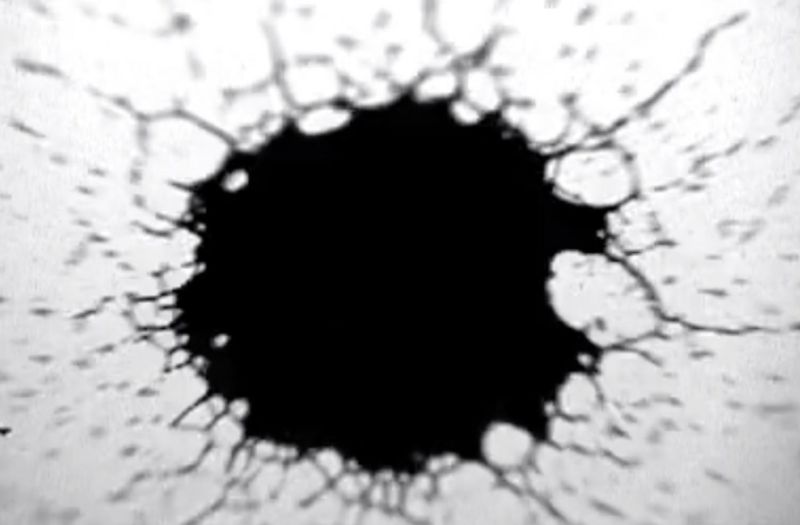Study finds ultimate fate of Leidenfrost droplets depends on their size

Enlarge / A new study shows the ultimate fate of Leidenfrost droplets, liquid drops that levitate above very hot surfaces. Larger drops explode violently with an audible crack. Smaller ones simple shrink and fly away. (credit: Lyu/Mathai)
In 1756, a German scientist named Johann Gottlob Leidenfrost reported his observation of an unusual phenomenon. Normally, water splashed onto a very hot pan sizzles and evaporates very quickly. But if the pan's temperature is well above water's boiling point, "gleaming drops resembling quicksilver" will form and will skitter across the surface. It's known as the "Leidenfrost effect" in his honor.
In the ensuing 250 years, physicists came up with a viable explanation for why this occurs. If the surface is at least 400 degrees Fahrenheit (well above the boiling point of water), cushions of water vapor, or steam, form underneath them, keeping them levitated. The Leidenfrost effect also works with other liquids, including oils and alcohol, but the temperature at which it manifests will be different. In a 2009 Mythbusters episode, for instance, the hosts demonstrated how someone could wet their hand and dip it ever so briefly into molten lead without injury, thanks to this effect.
But nobody had been able to identify the source of the accompanying cracking sound Leidenfrost reported. Now, an international team of scientists has filled in that last remaining gap in our knowledge with a recent paper by Mathai et al. in Science Advances.
Read 6 remaining paragraphs | Comments